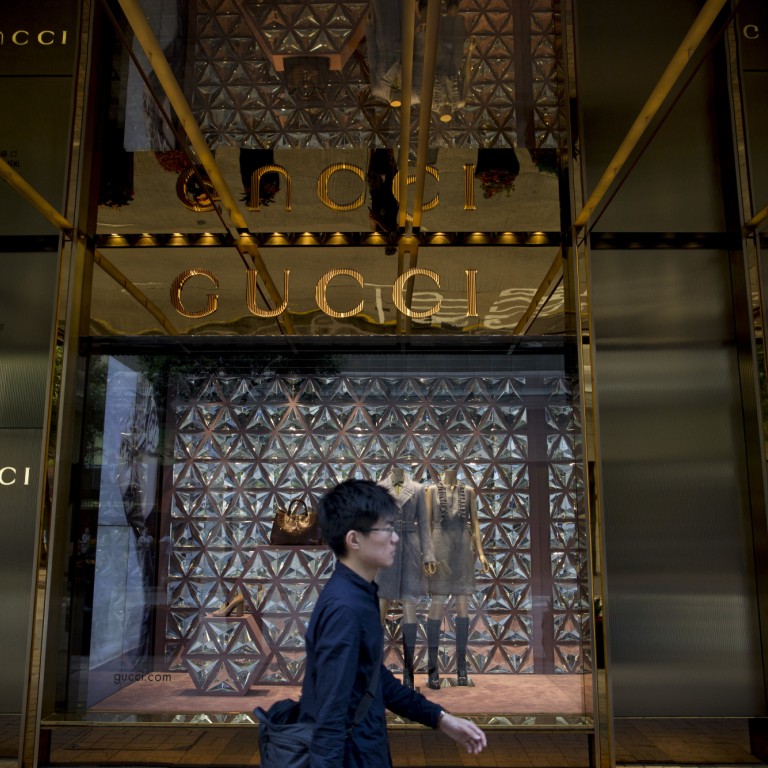
Hong Kong's stark choice: gradual integration or slow decay
Dan Steinbock says the city's social and economic challenges can only be addressed through more cooperation with the mainland
Hong Kong's lingering turmoil suggests that its economic future is not assured. Recently, the accused Washington of colluding with Occupy Central protest organisers to try and foment a "colour revolution". In the West, the charge has been downplayed.
Nevertheless, today, Hong Kong must cope with political, economic and external risks.
Chinese media has claimed Louisa Greve, vice-president of the National Endowment for Democracy, met Hong Kong protest leaders months ago. This has since been denied. But the organisation has long supported pro-democracy groups.
Some pro-democracy leaders have tried to "internationalise" the Hong Kong turmoil for months. In April, Anson Chan Fang On-sang, the convener of Hong Kong 2020, and Martin Lee Chu-ming, founding chairman of the Democratic Party, met Nancy Pelosi, the Democratic leader of the House of Representatives. At the White House, they told Vice-President Joe Biden that Beijing has been "tightening its controls" over Hong Kong.
The two asked for "a clear assurance that members of Congress are watching developments in Hong Kong closely". Afterwards, Senator Sherrod Brown, chairman of the Commission on China, warned that Hong Kong's democracy was "under threat". The commission has called on the US State Department to revive congressional briefings on human rights in Hong Kong.
In July, Chan and Lee had a similar agenda in Britain, addressing Parliament and meeting Deputy Prime Minister Nick Clegg.
Similar claims surround other protest leaders, including law professor Benny Tai Yiu-ting's alleged links with the National Endowment for Democracy, reports of donations to Joshua Wong's Scholarism group and media tycoon Jimmy Lai Chee-ying's business dealings and payments to neoconservative leader Paul Wolfowitz.
Perhaps efforts at foreign interference are not entirely unfounded. Yet, Hong Kong may have to cope with darker clouds abroad. As a small and highly open economy, the city is heavily influenced by global developments, particularly China's economic transition. Also, since the Fed is expected to hike policy rates by mid-2015, Hong Kong stands to benefit from tapering, as in the past, but only if the latter is associated with a recovery in US demand. And that is no longer assured.
The external risk is only part of the story. Hong Kong's retail sales, particularly of luxury items, have been hit in the past six months and the civil unrest has dealt another blow to the economy. The city is critically dependent on China, its largest export and import partner. More than 75 per cent of foreign investment and visitors are from the mainland.
The downtrend in retail sales is likely to continue. Hong Kong firms have underperformed for months amid perceived threats in key sectors, including retail, tourism and property.
Since 2008, cheap mortgages, constrained supply, gross domestic product growth and demand from overseas have pushed up property prices by 135 per cent, which far exceeds the rise in rents or wages. Sharp falls are to be expected.
Hong Kong remains the main offshore renminbi centre, but it will thrive only as long as it remains attractive to the mainland companies' fund-raising activities. As China's economic reforms expand and Shanghai evolves into the mainland's global hub for trade and finance, Hong Kong's role as a "gateway" is diminishing.
Hong Kong's greatest threat is not that of "becoming just another Chinese city", but fading into irrelevance. Most worrisome is the discrepancy between Hong Kong's economic gains and its eroding social fabric. Despite all the wealth it has reaped from China's economic reforms and opening-up in the past three decades, its income inequality is worse than in Zimbabwe, as measured by the Gini coefficient. But this polarisation is not the result of economic integration with China, but of inadequate social cohesion in Hong Kong. Nor will it get better by severing ties with the mainland. What Hong Kong needs is more cooperation with the mainland.
Through further integration with Guangdong, the city can greatly alleviate the challenges associated with its maturing economy, ageing population and entrepreneurial innovation.
Before the long hot summer, Hong Kong's growth was projected to be 2.8 per cent this year and less than 2 per cent in 2015. That was then.
In the short term, the protests are likely to have had a minimal impact on credit fundamentals. But if the situation continues to deteriorate, the probability of a negative impact will increase.
What Hong Kong desperately needs is responsible political development, adequate social policies and truly inclusive economic growth. It is time to choose between gradual integration and slow decay.

